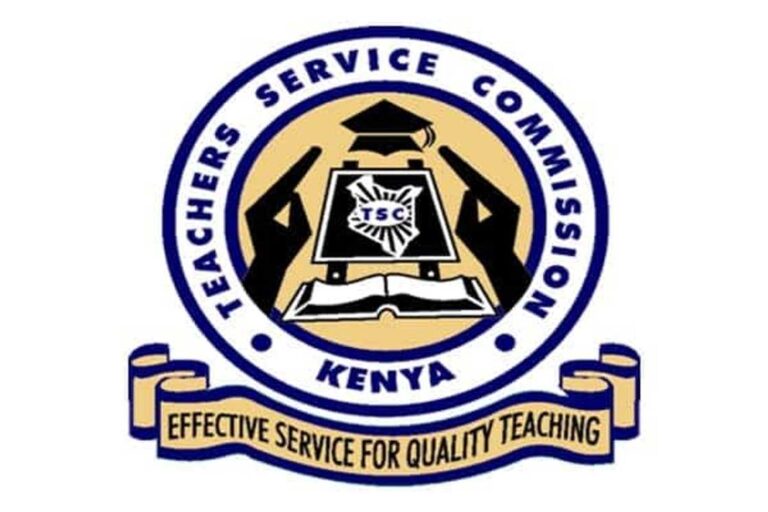TSC warns applicants against recruitment fraud as it announces 9,159 vacancies. Learn the official scam alerts, how to identify fraudsters, what the commission will never ask for, and how to report suspicious activity.
Every year when the Teachers Service Commission (TSC) announces recruitment, thousands of hopeful teachers begin the application process. Unfortunately, this also becomes the perfect season for fraudsters, impersonators, and middlemen who take advantage of desperate job seekers. With the recent announcement of 9,159 replacement vacancies for November 2025, TSC has issued strong warnings to protect applicants from falling victim to recruitment scams.
This article provides an in-depth look at TSC’s official fraud alerts, the common tricks used by scammers, what TSC will never ask for, how to stay safe, and the official channels for reporting fraud.
TSC Recruitment is 100% Free: No Payment Required
The Teachers Service Commission has made it clear that the recruitment exercise is completely free of charge. Applicants should not pay any money during any stage of the process, including:
- Application
- Shortlisting
- Interview
- Posting
- Replacement processes
- Accessing ‘special consideration’
- Vacancy allocation
Any demand for money is a direct sign of fraud.
How Fraudsters Target Applicants
Fraudulent individuals often pose as TSC officials, county directors, or principals claiming they can “help secure a slot.” These scammers may:
- Call applicants pretending to be TSC staff
- Send fake appointment letters
- Ask for money to ‘activate’ applications
- Claim they can influence merit lists
- Offer to ‘fast-track’ interviews
- Send fake SMS updates
- Use social media accounts posing as TSC officers
Many victims fall prey because these criminals sound legitimate and often use official-sounding language.
What TSC Will NEVER Ask For
The commission has listed several things they will never do. Understanding these is the best way to identify and avoid scams.
TSC will never:
- Ask for money to secure a job
- Assign agents to collect payments
- Send recruitment information via unofficial WhatsApp groups
- Call candidates demanding MPesa payments
- Use personal phone numbers for official communication
- Ask applicants to meet in private locations
- Promise jobs in exchange for gifts or favors
All official communication is done on:
- The TSC website www.tsc.go.ke
- The official teacher management portal teachersonline.tsc.go.ke
- Public notices through verified channels
If anyone claims otherwise, they are a scammer.
How to Report Fraud During TSC Recruitment
TSC has provided dedicated channels for reporting fraudulent activities. Applicants are encouraged to report immediately if they encounter suspicious individuals or activities.
Official Contacts for Reporting Fraud
- Director Staffing: 0202892193
- Deputy Director Staffing: 0202892131
- Email for reporting: [email protected]
Reports can also be filed at:
- The nearest TSC County Office
- The nearest police station
Providing screenshots, MPesa messages, fake letters, or phone numbers helps investigations progress faster.
Why Fraud Cases Are on the Rise
High unemployment among teachers and delayed recruitment cycles create a desperate environment where applicants are more vulnerable. Fraudsters know many unemployed teachers are willing to try anything to secure placement. This makes it even more important to remain vigilant.
How to Protect Yourself During Recruitment
Below are the strongest safety measures every applicant should follow:
1. Only Use Official TSC Websites
Do not trust links sent via WhatsApp or Facebook.
2. Do Not Deal With Middlemen
TSC does not use brokers, agents, or intermediaries.
3. Never Pay for a Job
Any request for money is an automatic scam.
4. Verify All Communication
Call your nearest TSC office to confirm legitimacy.
5. Keep Your Documents Secure
Do not share ID, TSC number, or certificates with strangers.
6. Attend Interviews Only at Official Venues
TSC interviews happen at known centres—never in hotels or private offices.
TSC’s recruitment for 2025 presents a huge opportunity for thousands of teachers across Kenya. However, scammers are equally active during this period. By following the official guidelines, understanding what TSC will never ask for, and reporting suspicious activity, applicants can protect themselves from fraud.
Remaining vigilant not only safeguards your money but also ensures that the recruitment process remains fair, transparent, and merit-based for all eligible teachers.





